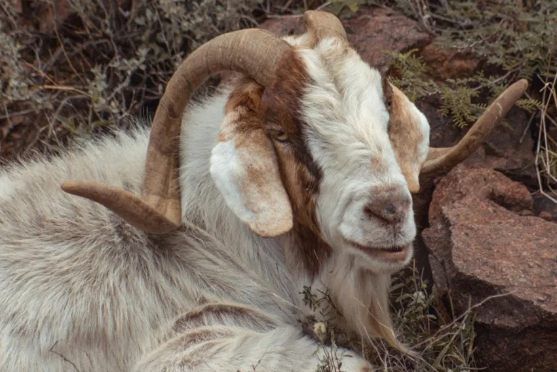Official Media Statement: Accidental Death of Franklin Mountains Goat
Sept. 11, 2024 – As Texas Parks and Wildlife Department (TPWD) staff begin the process of moving historically native desert bighorn sheep back into the Franklin Mountains this October, they captured “Bob”, a domestic non-native goat, to minimize the risk of disease transmission to incoming bighorn populations.

Limiting disease exposure and transmission of fatal bacteria known as Mycoplasma ovipneumoniae (M. ovi) presents one of the biggest challenges in successfully reintroducing native desert bighorn sheep into the Franklin Mountains. M. ovi is highly transmissible between domestic and wild goat and sheep species alike, and its impact on desert bighorn sheep in Texas has been devastating.
The risk of “Bob” the goat spreading the disease was too great to allow it to remain on the mountain during restoration efforts. Keeping it there would have jeopardized the successful establishment of a healthy desert bighorn population.
A local farm owner kindly agreed to welcome the goat as a new resident, and on Aug. 13, TPWD staff captured “Bob” by roping him, but he unfortunately died during the relocation process.
The goat was known to be at least nine years old but was suspected to be significantly older. The typical life span of domestic sheep and goats in free range settings is about 10 to 13 years.
“The death of the ‘Bob’ the goat was an unfortunate and unintended result of the relocation effort,” said Froylán Hernández, TPWD Desert Bighorn Sheep Program Leader. “Staff took the opportunity to collect tissue samples to better understand the cause of death and determine if the fatal bacteria, Mycoplasma ovipneumoniae (M. ovi) which causes infectious pneumonia in bighorn sheep, is present in the Franklin Mountains.”





